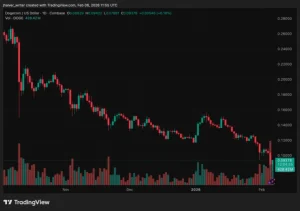India’s Cryptocurrency Conundrum: Taxed Yet Unregulated Amid Legal Uncertainty

India’s cryptocurrency sector faces a paradoxical environment: while digital assets are subject to taxation, they remain largely unregulated, creating a legal vacuum that challenges investors, exchanges, and policymakers alike. The government imposes a 30% tax on crypto gains alongside a 1% transaction levy, yet comprehensive regulatory guidelines addressing trading, custody, and fraud prevention are still evolving. This duality fosters uncertainty, leaving market participants exposed to compliance ambiguities and potential legal risks. Analysts argue that establishing a clear regulatory framework is essential not only for investor protection but also for enabling India’s digital finance ecosystem to mature in line with global standards.
Taxation Without Regulatory Clarity
India currently taxes profits from cryptocurrency transactions at 30%, with an additional 1% tax deducted at source on transfers. While these measures generate revenue and signal governmental acknowledgment of the sector, they fail to provide clarity regarding permissible activities, trading protocols, or anti-money laundering obligations. Investors are required to report gains accurately, yet the absence of a codified framework leaves them navigating a gray zone, increasing compliance risk and operational complexity.
The Legal Vacuum: Implications for Market Participants
The lack of a formal regulatory regime poses significant challenges for crypto exchanges, traders, and institutional entrants. Without explicit rules governing trading licenses, custody responsibilities, or consumer protections, market actors are vulnerable to legal disputes and regulatory scrutiny. Analysts warn that this vacuum could inhibit growth and innovation, deterring foreign investment while complicating domestic adoption of blockchain-based financial solutions.
Comparisons with Global Standards
Internationally, jurisdictions such as the United States, Singapore, and the European Union have implemented comprehensive regulatory frameworks that balance taxation, investor protection, and market innovation. India’s approach—taxing digital assets while leaving operational rules ambiguous—creates a mismatch that may hamper its competitive position in the global crypto market. Observers suggest that aligning India’s policies with global best practices would foster credibility and attract institutional participation.
The Path Forward: Regulatory Clarity Needed
Experts emphasize the urgent need for a coherent legal framework that defines permissible activities, licensing requirements, and investor safeguards. Clear guidelines would reduce compliance ambiguity, enhance market confidence, and support sustainable growth. Regulatory clarity could also enable fintech innovation, allowing crypto solutions to integrate seamlessly with traditional financial infrastructure while mitigating fraud and systemic risk.
Conclusion: Balancing Revenue with Responsibility
India’s taxation of cryptocurrencies underscores official recognition of the sector’s economic significance, yet the absence of comprehensive regulation exposes investors and service providers to uncertainty. Bridging this legal vacuum is critical for fostering trust, attracting investment, and enabling the domestic crypto ecosystem to mature responsibly. As digital assets continue to gain traction, policymakers must reconcile revenue objectives with market integrity to ensure sustainable development.




